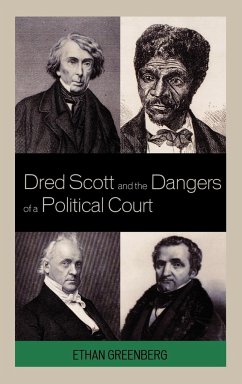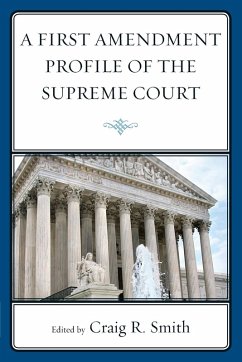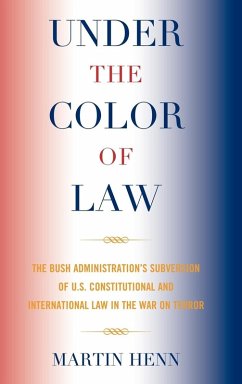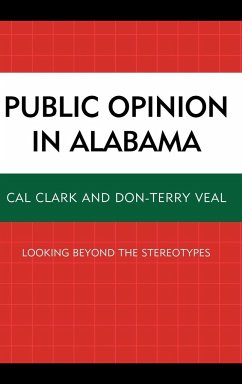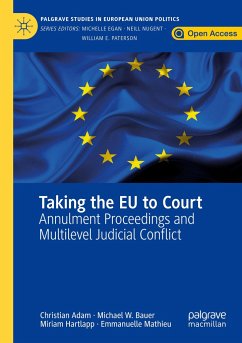
Dred Scott and the Dangers of a Political Court
Versandkostenfrei!
Versandfertig in 1-2 Wochen
57,99 €
inkl. MwSt.
Weitere Ausgaben:

PAYBACK Punkte
29 °P sammeln!
Dred Scott exemplies neither originalism nor aspirationalism gone wrong, as many modern critics now argue. Rather, the Dred Scott Court erred chiefly because the majority gave in to the still-relevant temptation to subordinate honest legal reasoning to the pursuit of what the majority regarded as a noble and crucial political agenda_in this case, to protect slavery and the political power of the slave-holding South, and thereby preserve the Union.





